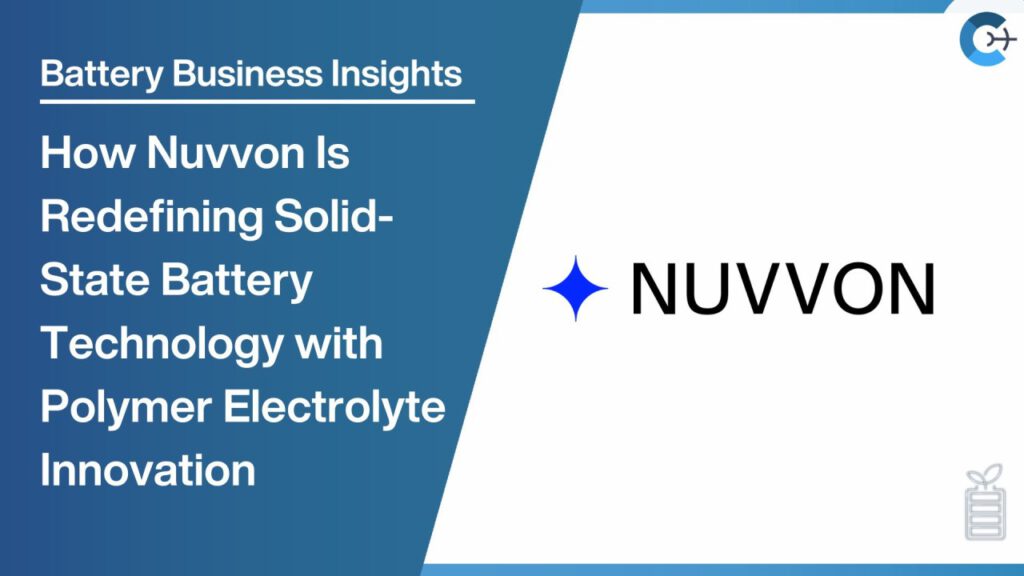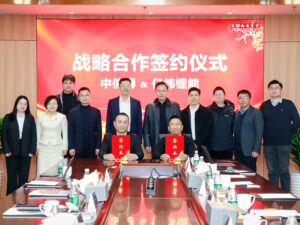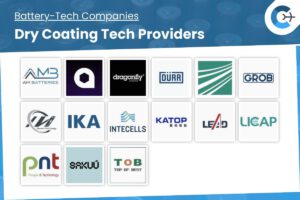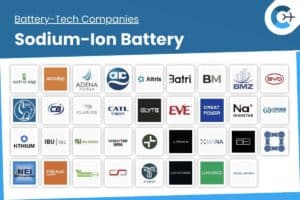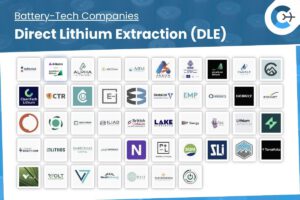Nuvvon, a New Jersey-based battery technology company, is developing state-of-the-art solid-state lithium metal batteries with a proprietary solid polymer electrolyte (SPE) system. Founded in 2017 as Sidhu Laboratories and expanded as Nuvvon in 2022, the company works to improve safety, increase energy density, and simplify manufacturing for next-generation energy storage. With proven performance at extreme temperatures and compatibility with existing lithium-ion production equipment, Nuvvon is positioned for applications such as electric vehicles and aerospace. Critically, the key differentiator of operating at ambient pressure also positions Nuvvon for consumer electronics.
Recently, Nuvvon has opened a new laboratory in Parsippany, New Jersey, expanding its research, manufacturing, and testing facilities for solid-state batteries. By expanding operations, the company aims to accelerate the creation of polymer electrolyte batteries.
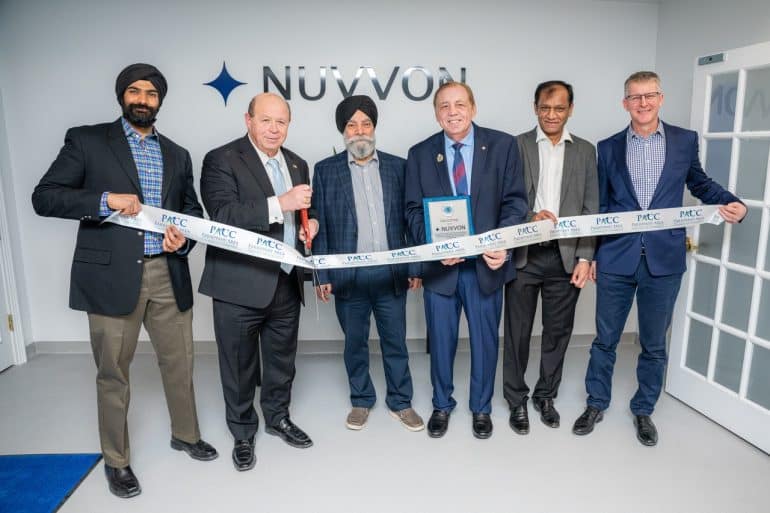
Beyond Conventional Solid-State Battery Technology
Nuvvon’s approach is built around a completely solid polymer electrolyte system that eliminates volatile liquid components. This design improves safety while delivering:
- High ionic conductivity: Reaching up to 4.6 mS/cm at room temperature, with stable performance from -20°C to 100°C.
- Lithium metal and high-nickel compatibility: Supporting energy densities that exceed those of traditional lithium-ion batteries.
- Standard manufacturing: The electrolyte functions as both separator and catholyte, fitting standard roll-to-roll processes and existing lithium-ion production setups.
Without the need for liquid electrolytes or additional pressure, Nuvvon avoids the complex packaging often required in other solid-state systems. Independent safety tests by Underwriters Laboratories (UL) confirm the cells resist thermal runaway, short circuits, and overcharging.
Strategic Focus and Market Differentiation
While many solid-state battery startups focus primarily on electric vehicles, Nuvvon maintains flexibility across several applications. “Safety and manufacturability guide our roadmap—we’re not just chasing performance metrics,” explains Dr. Madgwick. The company addresses the unique needs of various sectors, such as:
- Consumer Electronics: Improved safety and higher energy density without adding a compression system.
- EVs & Fast-Charging: Stable conductivity at elevated temperatures minimizes the need for cooling during DC fast charging.
- Energy Storage: Efficient and safe operation in hot and cold climates eliminates the need for heating or cooling.
Dr. Madgwick explains, “Keeping liquid electrolyte batteries below 50°C drains energy and creates challenges even when vehicles are parked. Our SPEs remove the need for cooling systems while reducing degradation at higher temperatures.”
Nuvvon distinguishes itself by avoiding common industry issues. It maintains solid-state battery integrity by not using liquid catholytes or plasticizers, ensuring stability even under high voltages. The design also features simplified packaging with zero compression requirements, eliminating the need for complex packaging or pressure monitoring. Additionally, Nuvvon demonstrates transparency by making performance data, such as temperature stability and ionic conductivity, available to the public.
Solid Polymer Electrolyte Manufacturing
Since 2020, the company has produced more than 1,000 solid-state prototypes (coin cell and pouch cell) using established lithium-ion production methods. Collaborations, including work with Columbia University on organic cathodes, focus on rapid charging and resource sustainability. Nuvvon’s cost-efficient strategy is to license its SPE formulations to existing manufacturers rather than build dedicated production facilities.
“We enable partners to produce cells with their existing lines,” notes Dr. Madgwick. “Our polymer electrolyte simplifies manufacturing compared to sulfide-based or oxide-based systems that require very high pressure and very high temperature processes.”
Nuvvon’s strategy, supported through seed funding, focuses on forming partnerships with OEMs and manufacturers that require high-nickel NMC compatibility with lithium metal.
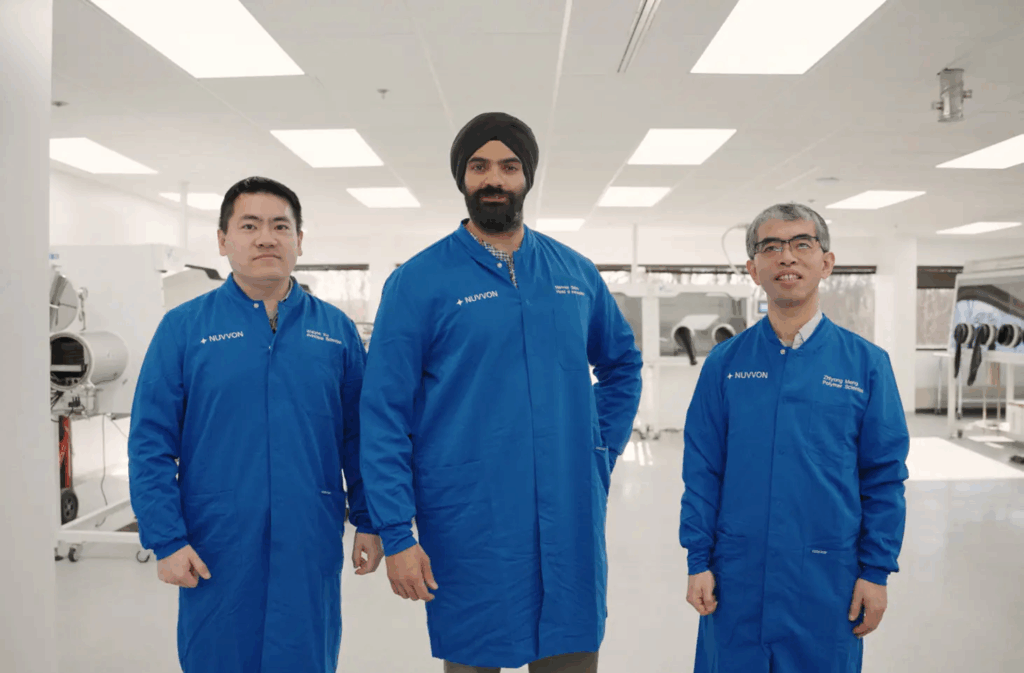
Operating in a Competitive Market
With more than 60 companies pursuing solid-state battery technology, Nuvvon maintains its focus on transparency and scale-up. The company produces prototype cells using standard OEM equipment, avoiding the expense of dedicated pilot lines. The short-term plan focuses on integrating lithium metal, whereas long-term projects include developing resource-efficient designs such as organic cathodes for aviation.
“The industry will see more failures than successes,” Madgwick observes. “We remain realistic by openly addressing technical challenges while advancing our core SPE advantages.”
Nuvvon addresses two significant challenges in solid-state battery development: scalability and compression. By reducing dependence on rare materials, it decreases supply chain vulnerability, thereby enhancing scalability. Additionally, the batteries maintain ionic conductivity over a wide range of temperatures without the need for pressure, heating or cooling. Wide temperature range is essential for electric vehicles in cold environments and grid storage in hot conditions.
Partnerships and Commercialization
Nuvvon will license its polymer formulations to international manufacturers. Recent funding of $5.3 million supports plans to scale production to multi-megawatt-hour lines. The company anticipates that commercial-grade cells will begin production within 12-18 months, contingent on closing investment agreements and completing JDAs.
In collaboration with Thermo Fisher Scientific, I recently interviewed Dr. Simon Madgwick, CEO and Director of Nuvvon, who discussed the company’s strategic priorities and technological milestones.
For more details, visit the original interview published by Thermo Fisher Scientific: Interview Article | Downloadable PDF

